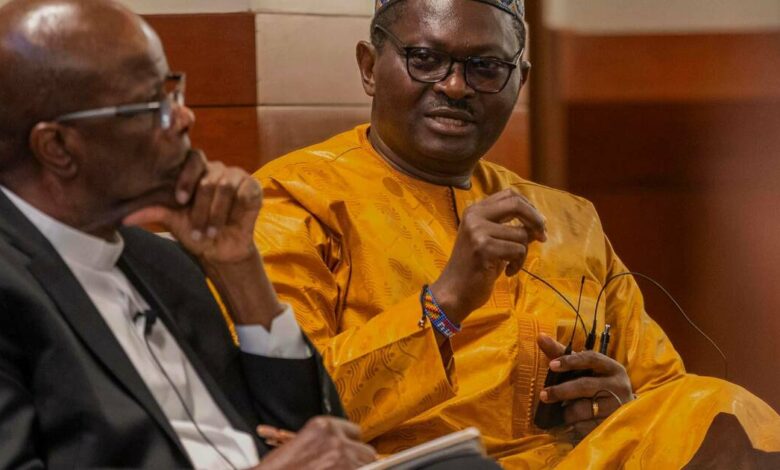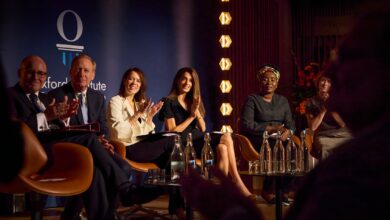Panel Explores Catholic Social Teaching and Human Rights in Africa | News | The Law School

Notre Dame Law School recently hosted a panel event titled, “How Does Catholic Social Teaching Animate Human Rights in Africa,” examining the intersection of Catholic social teaching, African culture, and human rights. The event brought together legal scholars, theologians, and human rights experts to explore how the Church’s principles and actions influence social justice across the continent.
The panel, held in the Eck Visitors Center Auditorium, was moderated by Professor Michael Addo and featured Dr. Robert Eno, Registrar of the African Court for Human and Peoples’ Rights; Dr. Antoinette Kankindi, faculty member at Strathmore Law School in Kenya; Father Paulinus I. Odozor, C.S.Sp, professor in the University of Notre Dame Department of Theology, and Kellogg Fellow for the Kellogg Institute for International Studies; and Professor Christine Venter, faculty member at Notre Dame Law School. Dean G. Marcus Cole introduced the session and speakers, highlighting the panelists’ experience and global perspectives.
The discussion began with the question of whether human rights are a Western concept. Panelists emphasized that, while major international covenants were often crafted by Western powers, African traditions have long upheld values akin to human rights, including solidarity, hospitality, and the dignity of the person and community. Panelists noted the centrality of communal values in African societies and highlighted the African Charter on Human and People’s Rights, which emphasizes economic, social, and cultural rights, alongside duties to family and community, elements often overlooked in Western frameworks.
“The idea that human rights is a purely Western concept is fading,” said Eno, underscoring the universality of human dignity and shared aspirations for justice.
Panelists drew connections between African communal traditions and Catholic social teaching. Father Odozor noted, “The rights that people have are because they are God’s creatures, they are individual persons, and they cannot be subsumed under community interests.”
The Catholic Church’s role in balancing individual and community rights was highlighted as well. Panelists cited the Church’s monumental contributions in education, healthcare, and advocacy for families. “One of the greatest things that the Church has done to animate the discourse of human rights is her monumental work in education… and in health, and in the defense of the family,” said Kankindi.
Panelists recalled historical examples of the Church’s influence, including its role in resisting apartheid in South Africa. Venter explained, “The Dutch Reformed Church adopted apartheid as divinely ordained. The Catholic Church was the one to call that out as basically a heresy.”
Looking ahead, panelists agreed that Africa’s youth will be central to the continent’s human rights future. “By 2050 about one-third of Africa’s population will be under 35,” said Eno. “That is where the Church must focus—because unemployment, drug abuse, and lack of opportunity may lead to a lost generation if something is not done.”
The Q&A session engaged both audience and panelists in thoughtful dialogue. Attendees inquired about the Church’s role in addressing government and non-government abuses, financial practices, and doctrinal stances on sensitive issues such as contraception and the HIV/AIDS crisis. The panel underscored both the challenges and opportunities of connecting universal human rights with Africa’s rich cultural heritage.
Watch the full panel below:
Source link

